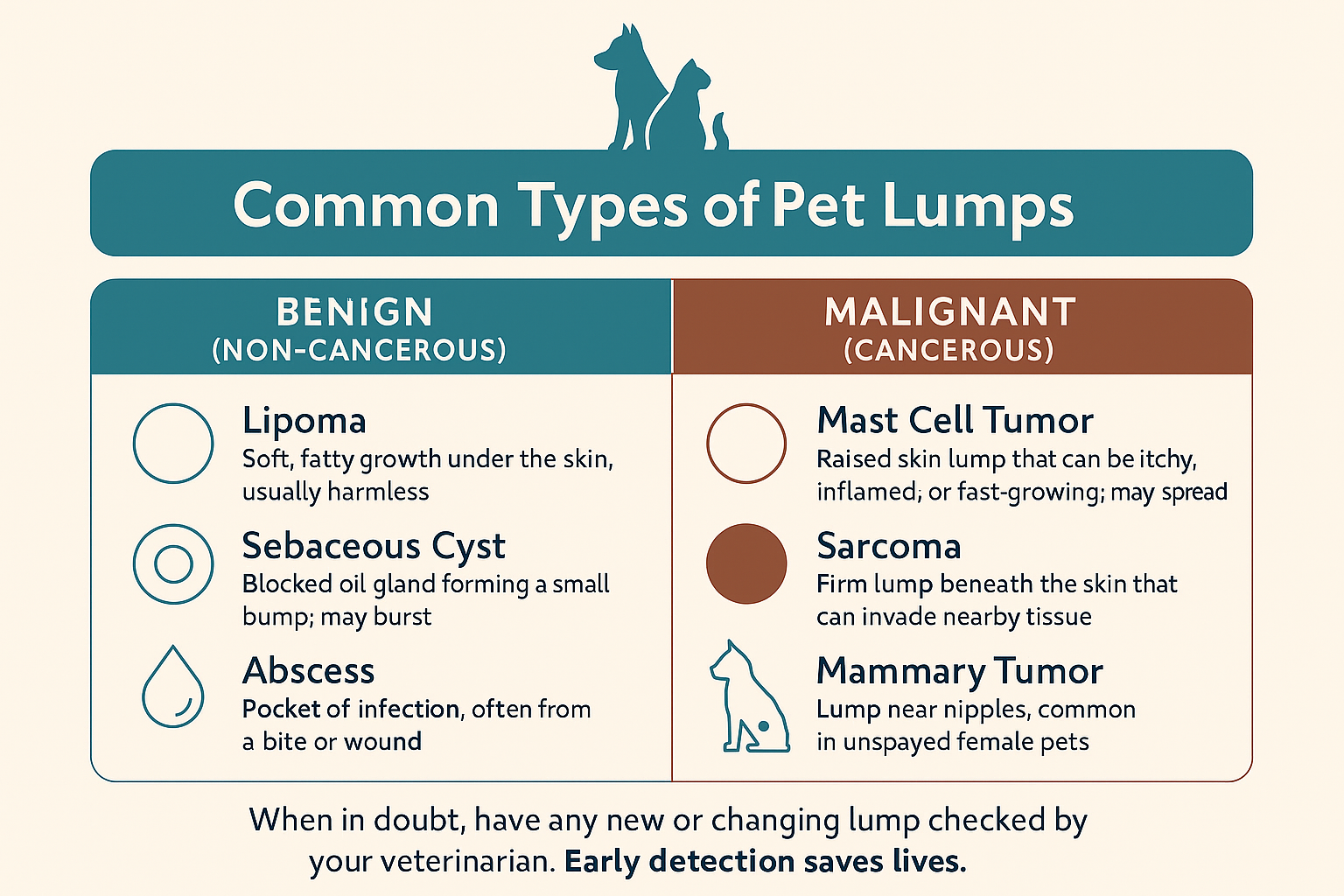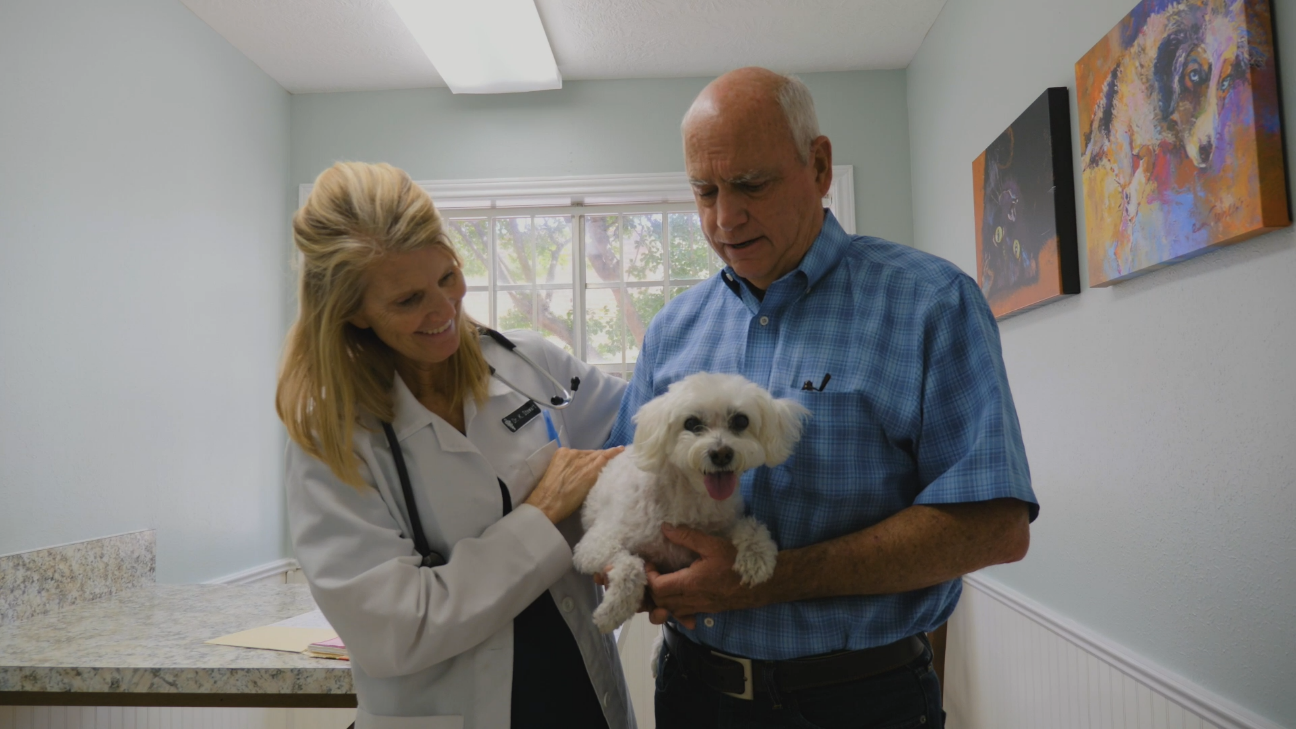Pet Cancer Awareness: Understanding Lumps and Bumps in Dogs and Cats
Not all lumps are dangerous—but some may be. Learn how College Hills Veterinary Hospital in College Station helps detect and manage pet cancer early.
When a Simple Lump Might Mean Something More
Discovering a lump or bump on your dog or cat can be unsettling. Your mind may immediately jump to the worst—is it cancer? November is Pet Cancer Awareness Month, making it the perfect time to learn which lumps may be harmless and which deserve closer attention. At College Hills Veterinary Hospital in College Station, we want pet owners to understand what these changes can mean and how early detection can make all the difference.
Why Awareness Matters
Cancer is a health concerns in pets, especially as they age. According to the American Veterinary Medical Association (AVMA), about one in four dogs will develop cancer during their lifetime, and nearly half of dogs over age ten will be affected. While less common in cats, the AVMA notes that cancer is still a significant health concern, particularly as cats grow older. (Source: AVMA — “Cancer in Pets”)
While these numbers sound concerning, there’s good news—many cancers, when detected early, can be treated or managed successfully.
The key is knowing what to watch for and acting quickly when you notice something unusual.
Lumps and Bumps: Not Always a Cause for Alarm

Not every lump means cancer. Pets can develop different types of skin growths, and many are benign (non-cancerous).Benign lumps may stay the same size for years, while malignant (cancerous) tumors tend to grow, change, or cause discomfort.
For more detailed information about one of the most common skin cancers in pets, read our blog: Understanding Mast Cell Tumors in Dogs and Cats.
Keeping track of your pet’s lumps—when they appear, whether they change, or if they cause pain—helps your veterinarian determine what type of growth it may be.
When to Be Concerned About a Lump
If you find a lump on your pet, take note of its size, texture, and location. Then watch for warning signs that mean it is time to call your veterinarian:
- The lump grows quickly or suddenly changes shape
- It feels hard or fixed under the skin
- The area becomes red, ulcerated, or painful
- There is bleeding or discharge
- Your pet loses weight, appetite, or energy
- Multiple new lumps appear in a short time
Even if the lump seems small or harmless, our veterinarians may recommend testing or monitoring for your peace of mind.
Early Detection Through Cancer Screenings
During an exam, your veterinarian at College Hills Veterinary Hospital will carefully evaluate any new or existing lumps. Diagnostic steps—such as fine-needle aspiration or biopsy—can help determine whether a growth is benign or malignant. Early detection often makes all the difference in treatment success. Regular wellness exams and prompt attention to new lumps help protect your pet’s long-term health.
Grooming: The Perfect Time for Lump Checks
While brushing your dog or cat, take a few extra minutes to feel along their body for any new lumps or changes. Focus on areas like the chest, belly, and under the legs, where lumps often go unnoticed beneath fur. Making this part of your weekly routine can help you catch concerns early—long before they become serious.
Check Your Pet’s Mouth Too!
Oral cancers are more common than many pet parents realize. Lift your pet’s lips once a week to check their gums, cheeks, and tongue for unusual lumps, sores that don’t heal, or bleeding.
Also watch for signs like drooling, difficulty chewing, or facial swelling—and schedule an exam right away if you notice anything unusual.
How College Hills Veterinary Hospital Can Help

At College Hills Veterinary Hospital, we believe prevention and early detection are key to keeping pets healthy. Our compassionate team offers comprehensive exams, diagnostic testing, and cancer screenings to help identify problems early. Whether your pet’s lump turns out to be harmless or needs treatment, we are here to guide you through every step with expert care.
When in Doubt, Check It Out
If you have found a lump or bump on your pet, do not wait and worry. Schedule an appointment with College Hills Veterinary Hospital in College Station today to get answers and peace of mind.
College Hills Veterinary Hospital
209 Dominik Dr
College Station, TX 77840
